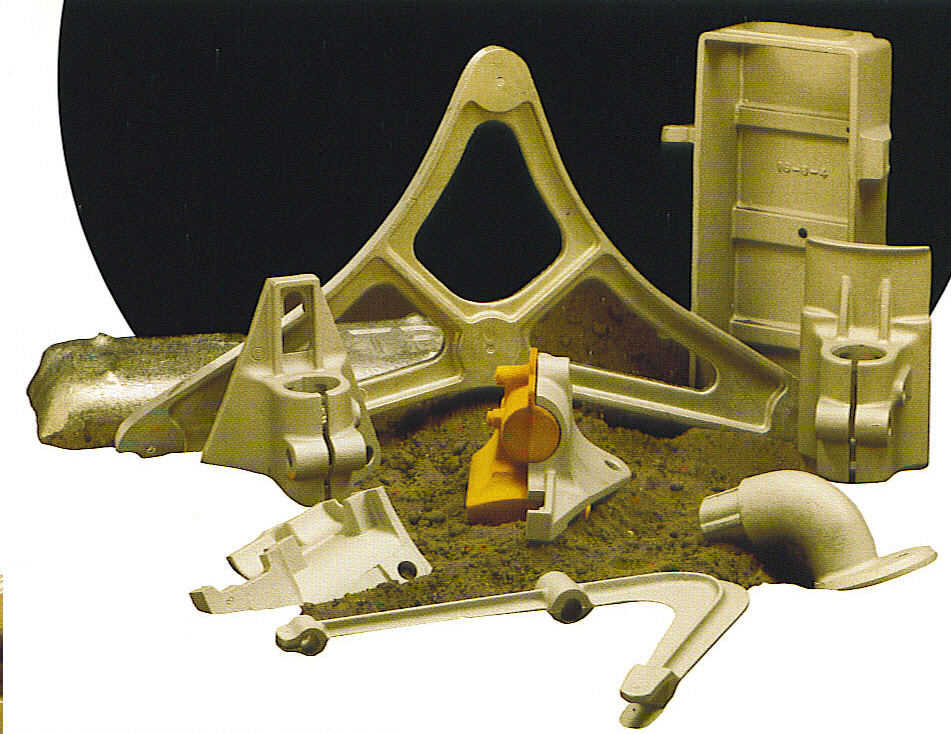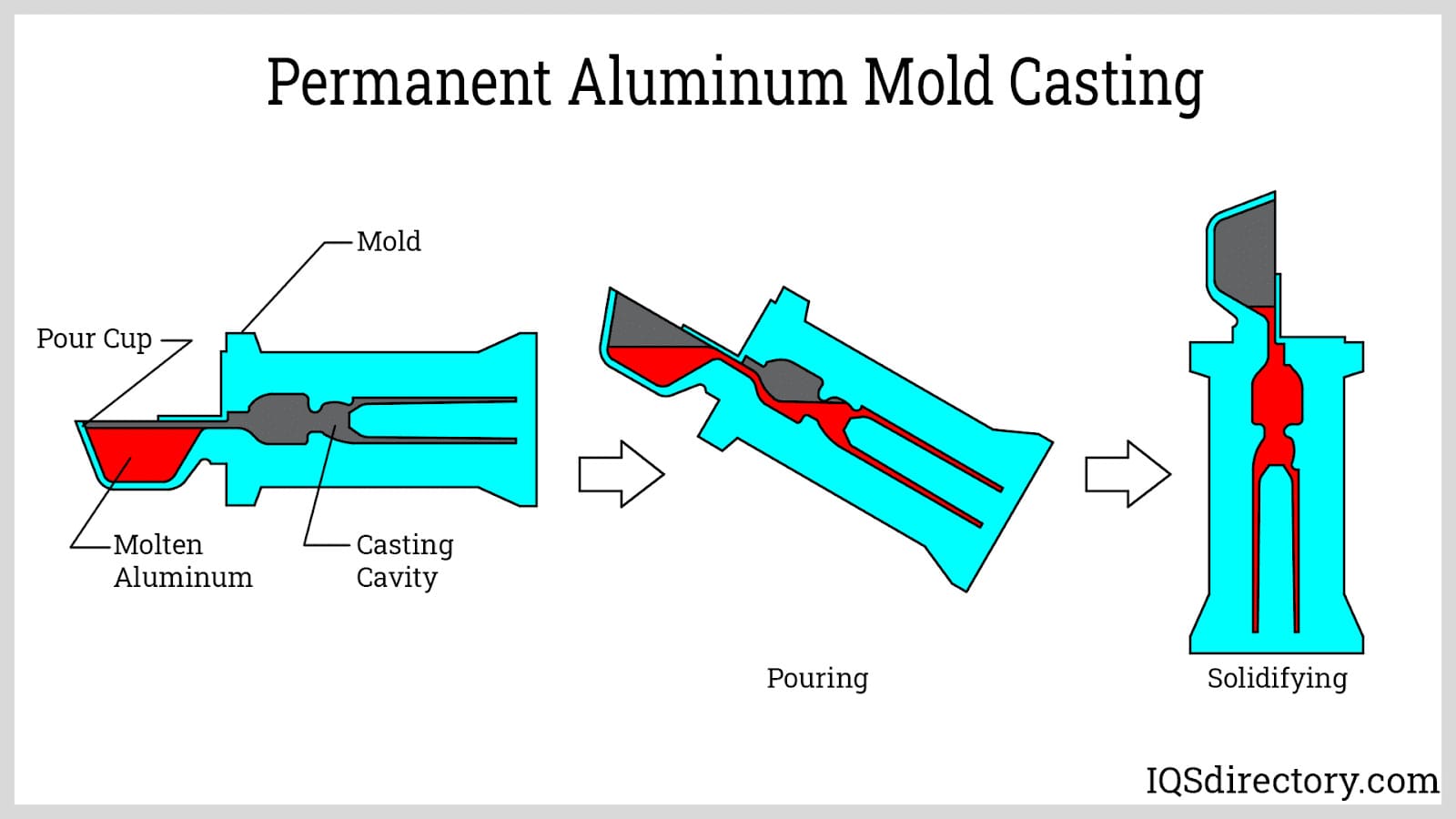How Wisconsin Aluminum Foundry is shaping the future of Metal Castings industry
Wiki Article
Comprehending the Role of Aluminum Foundry in Creating High-Quality Metal Products
Aluminum foundries are essential in the production of high-grade metal products. They use various casting strategies, such as sand and pass away casting, to accomplish accuracy and durability. With strenuous quality assurance actions in position, these centers guarantee that their items meet sector standards. As industries evolve, the function of Aluminum foundries remains to adjust. This elevates concerns concerning future innovations and sustainability techniques that may redefine their influence.The Aluminum Spreading Refine: Strategies and Technologies
The Aluminum spreading process has actually developed considerably, integrating numerous techniques and advancements that improve effectiveness and item high quality. Typically, approaches such as sand casting and pass away casting were predominant; however, innovations have actually introduced procedures like financial investment spreading and low-pressure die casting. These advancements make it possible for makers to attain complex styles and tighter tolerances, lowering product waste and boosting overall efficiency.Additionally, the combination of computer-aided style (CAD) and simulation software application enables more specific modeling and screening, making sure that potential problems are identified early in the manufacturing cycle. Furthermore, improvements in alloy formulas cause improved mechanical residential or commercial properties and deterioration resistance
These developments not only improve manufacturing however additionally promote sustainability by lessening energy usage and emissions. As the sector remains to welcome brand-new modern technologies, the Aluminum casting procedure remains a crucial part in generating high-quality steel items that satisfy diverse market needs.
Applications of Aluminum in Numerous Industries
Light weight aluminum's flexibility and positive buildings make it a beneficial material across various sectors. In the automobile industry, Aluminum is commonly used for its light-weight qualities, contributing to enhanced gas performance and performance. The aerospace industry also benefits, as light weight aluminum's high strength-to-weight proportion boosts aircraft design while preserving security standards.In building, Aluminum is favored for its longevity and resistance to deterioration, making it ideal for window frames, roof covering, and structural parts. The product packaging market leverages light weight aluminum's safe nature and recyclability, especially in food and drink containers, guaranteeing safety and sustainability.
In addition, the electric sector employs Aluminum for its outstanding conductivity in wiring and transmission lines. The customer products sector uses Aluminum in products varying from kitchen utensils to electronic devices, highlighting its flexibility. Aluminum plays a vital duty in improving functionality, effectiveness, and sustainability throughout varied applications.
Advantages of Utilizing Aluminum Over Various Other Steels
While many metals are employed in numerous applications, Aluminum stands out as a result of its distinct combination of homes that use a number of benefits over various other products. Its light-weight nature considerably minimizes transportation prices and energy consumption, making it suitable for industries such as auto and aerospace. Light weight aluminum's excellent corrosion resistance improves durability, expanding the life of items and decreasing upkeep needs. Additionally, it displays high thermal and electric conductivity, making it appropriate for electric and thermal monitoring applications.The steel's malleability enables complex forms and intricate layouts, providing adaptability in manufacturing processes. Light weight aluminum is 100% recyclable without loss of top quality, promoting sustainability and minimizing environmental influence. These qualities, integrated with its fairly inexpensive contrasted to other steels, placement Aluminum as a recommended selection throughout various fields. Overall, the benefits of Aluminum add to its boosting appeal in the production of high-quality steel items

Quality Assurance Steps in Aluminum Foundries
Quality control procedures play a crucial duty in the Aluminum Foundry procedure, making certain that the last items satisfy rigorous industry criteria and consumer assumptions. These procedures commonly begin with material evaluation, where raw Aluminum is assessed for purity and composition. When the spreading procedure starts, temperature control is essential; preserving excellent molten metal temperature levels prevents issues such as porosity and shrinkage.Furthermore, non-destructive testing (NDT) methods, including radiographic and ultrasonic assessments, are employed to identify interior imperfections without harming the castings. Visual evaluations are likewise carried out at numerous stages to recognize surface blemishes.
Adherence to well established top quality monitoring systems, such as ISO criteria, is necessary for maintaining consistency and traceability throughout the manufacturing process. Routine audits and staff member training on top quality criteria add to an overall culture of excellence, ensuring that the products not just satisfy but surpass customer assumptions in efficiency and sturdiness.
The Future of Aluminum Foundries: Patterns and Sustainability
As the Aluminum Foundry sector advances, emerging patterns and a focus on sustainability are improving its landscape. Increasing need for resilient and light-weight materials in industries like automobile and aerospace drives development in Aluminum spreading techniques. Advanced innovations, such as expert system and automation, are enhancing production effectiveness and accuracy while reducing waste.Sustainability is ending up being a critical issue, motivating shops to carry Read Full Article out environmentally friendly methods, consisting of reusing Aluminum scrap and making use of sustainable energy resources. The change towards circular economic situation concepts encourages foundries to reduce environmental influence while fulfilling consumer expectations for sustainable products.
Furthermore, governing pressures are pressing the industry towards cleaner procedures, fostering cooperation in between makers and environmental companies. As these trends converge, the future of Aluminum foundries will likely be characterized by a commitment to top quality, efficiency, and sustainability, ensuring their importance in an open market.
Frequently Asked Questions
What Are the Ecological Effects of Aluminum Foundries?
Light weight aluminum foundries contribute to ecological impacts with energy intake, greenhouse gas exhausts, and prospective air and water pollution. Furthermore, mining bauxite for Aluminum can result in environment destruction and soil deterioration, impacting regional communities.

Just How Do Factories Make Sure Worker Safety And Security During Manufacturing?
Shops implement strenuous safety procedures, including safety devices, air flow systems, and routine training. They conduct danger assessments and preserve safety standards to reduce hazards, making certain a safer working setting for staff members throughout the production procedure.What Certifications Should a Light Weight Aluminum Foundry Have?
An aluminum Foundry must possess certifications such as ISO 9001 for top quality monitoring, ISO web 14001 for ecological management, and OSHA compliance for safety and security criteria. These accreditations assure adherence to industry laws and dedication to quality click to read more and safety practices.How Does Aluminum Recycling Affect Foundry Workflow?
Aluminum reusing considerably boosts Foundry procedures by offering a cost-efficient resources source, minimizing energy intake, and lessening environmental effect - Wisconsin Aluminum Foundry. It additionally urges lasting methods, permitting foundries to maintain competitiveness in a quickly progressing marketWhat Prevail Problems in Aluminum Castings?
Usual issues in Aluminum castings include porosity, shrinking, incorporations, and surface area blemishes. These issues can emerge from incorrect mold style, poor putting methods, or contamination throughout the melting and spreading processes, influencing general item quality.
Report this wiki page